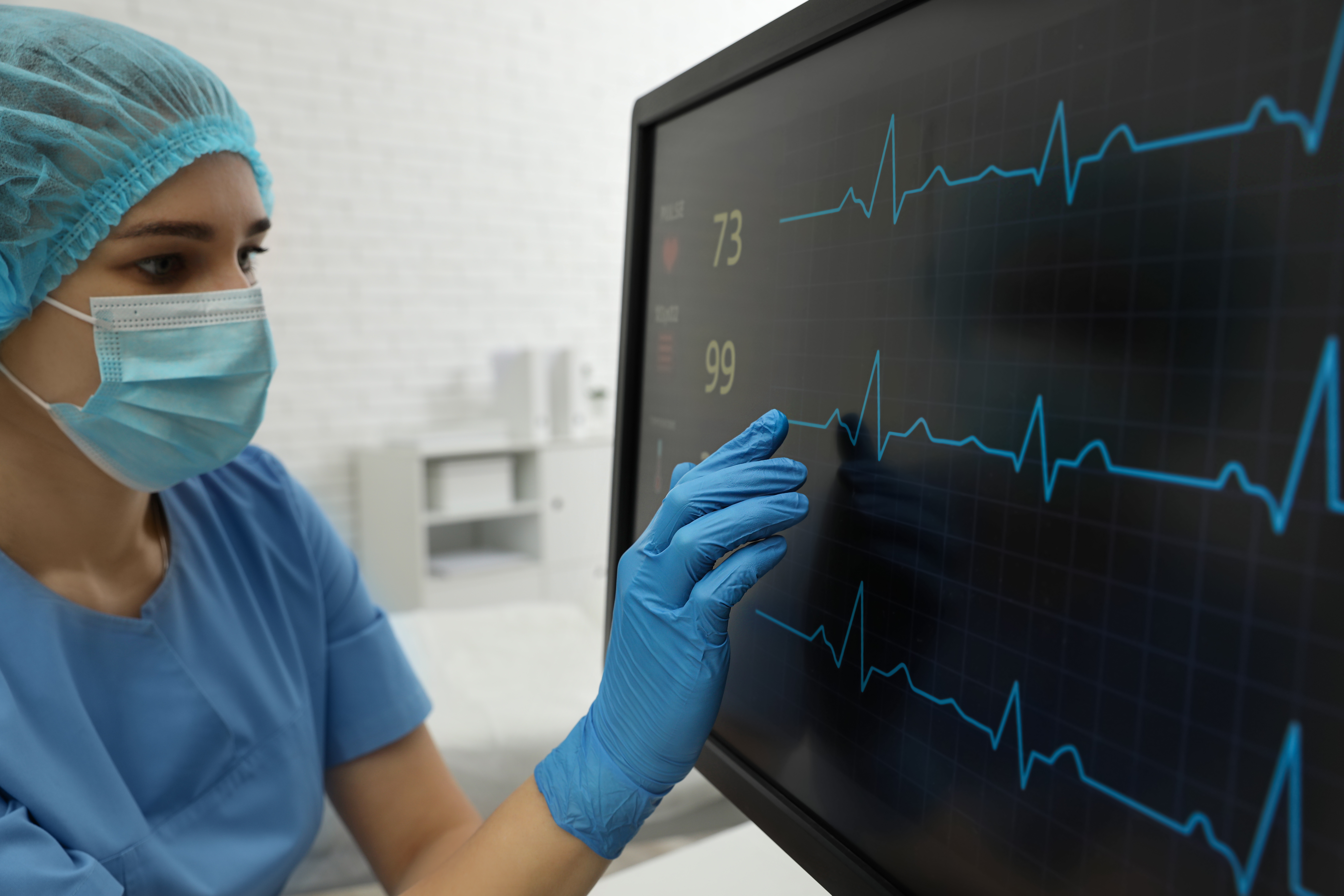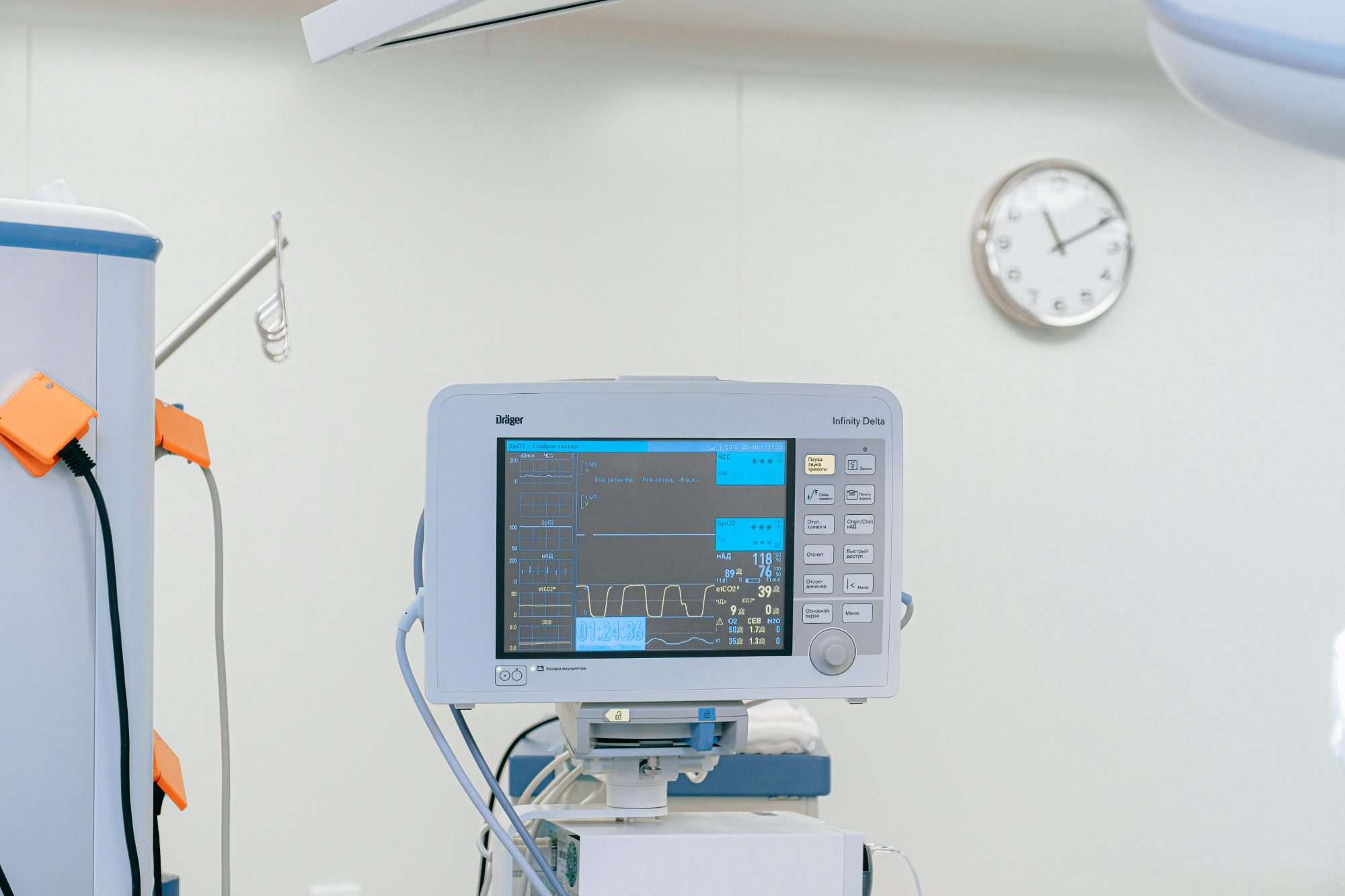Cardiac Nurse Career Overview: How to Become and What to Expect from a Career in Cardiovascular Nursing

Did you know that cardiovascular diseases are the leading cause of death worldwide? According to the World Health Organization, an estimated 17 million people die yearly due to heart-related conditions, particularly heart attacks and strokes.
In the face of this alarming statistic, Cardiac Nurses play a vital role in providing care and support to patients with heart conditions. Their dedication and specialized knowledge contribute significantly to improving people’s quality of life and reducing the impact of heart diseases on patients and communities.
If you’re interested in pursuing a career in this field, you’ve come to the right place. In this guide, we’ll discuss everything you need to know to build a successful and meaningful career as a Cardiovascular Registered Nurse.
From how to become a Cardiac Nurse to what are their duties and responsibilities, as well as the challenges and rewards that come with this profession, you’ll find answers to all your questions below. Curious how much you can make in this role or how long it takes to start working?
Keep on reading to find out.
What Is a Cardiac Nurse?

Cardiac Nurses, also known as Cardiovascular Nurses or Cardiology Nurses, are skilled healthcare professionals who specialize in the treatment and management of patients with heart diseases. They work alongside cardiologists, surgeons, and other healthcare providers to deliver comprehensive care to people confronting cardiovascular problems. Everything from heart attacks, congestive heart failure, arrhythmias, and more falls under their expertise.
Delivering high-quality care in cardiovascular nursing requires a unique blend of knowledge about the heart, sharp assessment skills to monitor patients’ changing conditions, and the ability to act quickly with appropriate nursing treatments.
In recent years, cardiac nursing has become more complex due to advancements in medical science. New technologies, medications, and devices that help support and treat heart conditions emerge constantly. More temporary solutions until heart transplants become available or innovative long-term therapy options arise. As a Cardiac Nurse, you’re on the frontlines of care in this industry, so you need to keep up with the developments for the sake of your patient’s well-being.
And, of course, your expertise in cardiovascular care needs to go hand in hand with compassion, patience, and empathy. A combination of soft and hard skills is the key to a successful career in cardiac nursing.
How to Become a Cardiac Nurse?

Becoming a Cardiology Nurse requires a specific educational path and ongoing professional development. In this section, we’ll look at the step-by-step process you have to undergo to become a Registered Nurse working in cardiac nursing. Because the minimum educational requirement is a BSN degree, it takes at least four years to start practicing.
Let’s not get ahead of ourselves and start from the beginning.
Step 1: Enroll in a nursing program
The first thing you do for any nursing career is to enroll in a nursing program. You have several options, but two programs are more popular: the Associate Degree and the Bachelor’s Degree in Nursing.
An ADN is the fastest way to a nursing degree. It takes around two years to complete, and at the end of the program, you’re eligible to sit for the NCLEX-RN and gain your licensure. It’s a good option if you want to enter the nursing workforce as soon as possible.
If your heart is set on helping other people’s hearts, the best option is to pursue a BSN. With a Bachelor’s Degree in Nursing, you get a more comprehensive foundation in nursing practice, critical thinking, research, and leadership skills. Not only does it offer a broader understanding of healthcare, but a BSN also leads to increased opportunities for specialization, better potential for career advancement, and higher salaries.
Nightingale College’s BSN Program is the ideal choice for aspiring Cardiac Nurses. With an accelerated graduation option of just 32 months and advanced placement opportunities for LPNs and METC graduates, our accredited program equips you with the necessary skills and knowledge to excel in your future nursing career. The program follows a blended-distance format, combining online didactic instruction with on-ground experiential learning where you can apply theoretical concepts to real healthcare settings.
Enroll into our BSN Program and start your cardiac nursing career! Send in your application today!
Step 2: Obtain your nursing license
After completing your chosen nursing program, there’s one more stumbling block between you and your life as an RN. You need to pass the National Council Licensure Examination for Registered Nurses (NCLEX-RN) and become a fully licensed Registered Nurse.
This standardized exam is the ultimate challenge for aspiring RNs. Designed to test your knowledge and skills, the NCLEX-RN is not your ordinary test. It’s a comprehensive computerized exam that pushes you to think critically, demonstrate clinical judgment, and showcase your ability to provide safe and effective nursing care. Acing the NCLEX-RN is your ticket to obtaining that coveted nursing license and launching your rewarding career.
After you pass it, check on your state’s licensing requirements. They may vary slightly, so you need to fulfill the ones that apply to the state where you want to practice. Submit the documents and get ready to embark on a meaningful journey.
Step 3: Gain clinical experience
As a new nurse fresh off the school benches, it’s time to apply your hard-earned knowledge.
Start by updating your nursing resume, honing your interview skills, and applying to jobs that pique your interest.
Seize every opportunity to gain invaluable clinical experience in cardiovascular settings, such as cardiac care units or cardiac rehabilitation centers. By immersing yourself in these environments, you’ll have hands-on exposure to a range of heart conditions, diagnostic procedures, and treatment modalities.
Navigating the first year as a new nurse can be challenging, but our comprehensive guide is here to lend you a helping hand. Discover the best tips and tricks for nursing graduates to make the best of their first year as Registered Nurses.
Step 4: If you’re an ADN-trained nurse, look into getting your BSN
Many nurses who start their career with an ADN decide to advance their education and get a Bachelor’s Degree in Nursing.
Enrolling in a fast-track RN-to-BSN bridge program is the best way to do that. It’s fast, efficient, and in most cases, online. That allows you to study on your own schedule, which means you can seamlessly combine working and learning.
The RN-to-BSN program from Nightingale College is a wonderful option for nurses looking to further their education. It can be completed in as few as 12 months; it’s online and 100% career friendly.
Step 5: Get cardiac certification for nurses
Getting certified is a voluntary yet highly encouraged next step. It showcases your expertise and dedication to the field, winning the respect and recognition of your peers. It’s also an excellent way to boost your income and career advancement possibilities.
In the area of cardiovascular nursing, you have quite a few specialized certifications available.
Consider pursuing specialized certifications in cardiac nursing to showcase your expertise and dedication to the field. The Cardiac-Vascular Nursing Certification (CV-BC) is one example of a certification that validates your knowledge and skills in cardiac care. Other certifications specific to cardiac nursing may include Certified Cardiac Rehabilitation Professional (CCRP) or Cardiovascular Nurse-Level I and Level II. These certifications demonstrate your commitment to professional growth and can enhance your career prospects by setting you apart as a specialized Cardiology RN.
Step 6: Pursue continuing education and professional development
As a heart nurse, it’s essential to stay up to date with the latest advancements and evidence-based practices in cardiovascular care. Nursing is the type of career that counts on life-long learning. That’s why continuing education is key for people who are passionate about their jobs and want to excel in the field.
Engage in continuing education opportunities such as conferences, workshops, and seminars on cardiac nursing. Follow nursing journals and network with like-minded professionals. The more you pursue personally and professionally enriching activities, the more you’ll expand your knowledge, get exposed to emerging trends, and become a better nurse.
Step 7: Consider advanced education
If you want to climb to the top of the professional ladder, consider pursuing advanced education, such as a Master of Science in Nursing (MSN) degree specializing in cardiovascular nursing to unlock advanced practice roles, leadership opportunities, research positions, and teaching positions.
Generally, it takes around two years to get an MSN. But if you’re interested in becoming a Nurse Practitioner in Cardiology, it’s worth investing time, money, and energy in getting the degree.
What Does a Cardiac Nurse Do?

There’s a wide range of important duties and responsibilities that revolve around the care and management of patients with heart conditions. If you’re wondering: What do Cadiac RNs do? We’ve got you covered.
Here are some critical aspects of the job:
- Patient Assessment and Monitoring:
- Cardiac Nurses conduct thorough assessments of patients with cardiovascular conditions, including taking their medical history, recording vital signs, and performing physical examinations.
- Monitor and interpret cardiac rhythms using tools such as electrocardiograms (ECGs) and telemetry devices.
- Assess patients’ responses to medications, treatments, and interventions, and report any changes or concerns to the healthcare team.
- Continuously monitor and evaluate patients’ cardiac status, including blood pressure, heart rate, oxygen saturation, and other relevant parameters.
- Recognize signs of distress or deterioration in patients and initiate appropriate interventions.
- Medication Administration and Management:
- Cardiac RNs will administer medications to patients according to the doctor’s prescription.
- Educate patients about their prescribed medications, including dosage, potential side effects, and the importance of taking medicine timely.
- Monitor and manage intravenous medications.
- Patient Education and Counseling:
- It’s an important role for Cardiac nurses to provide comprehensive patient education regarding their heart condition, treatment plans, medications, and lifestyle modifications.
- They will teach patients and their families about cardiac risk factors, symptom recognition, and strategies for prevention.
- Support patients in making necessary lifestyle changes, such as adopting a heart-healthy diet, exercising regularly, and quitting smoking.
- Address patients’ questions, concerns, and emotional needs related to their cardiac condition.
- Collaborative Care and Teamwork:
- Collaborate with the healthcare team, including cardiologists, cardiac surgeons, nurse practitioners, and other specialists.
- Participate in multidisciplinary rounds, contribute to care planning, and communicate patient updates and progress to the team.
- When needed, coordinate and facilitate referrals to other healthcare providers, such as cardiac rehabilitation programs or social services.
- Act as an advocate for patients, ensuring their voice is heard, and their needs are met.
- Documentation and Record-Keeping:
- Maintain accurate and detailed records.
- Complete electronic health records and other necessary paperwork promptly and thoroughly.
How Much Does Cardiac Nurses Make?
One of the factors that often influence career decisions is salary potential. According to ZipRecruiter, as of June 2023, the average annual salary for cardiovascular nurses in the United States is reported to be $106,980.
However, bear in mind that many factors can influence your wages. Location, experience, education, and the employing healthcare facility are just some of them. Higher-cost regions or urban areas may offer higher salaries to compensate for the increased living expenses, while rural areas may have lower salary ranges.
Must-Have Skills to Succeed in the Role of a Cardiology Nurse

This nursing role requires a unique blend of skills. These are some you cannot do without:
Strong Clinical Competence
You’ll need a solid foundation of clinical knowledge and skills related to cardiovascular care. Things like a thorough understanding of cardiac anatomy and physiology or in-depth knowledge of cardiac conditions and treatment modalities are indispensable to nurses working in cardiac units. The good news is a quality educational program will equip you with these skills.
All you have to do is apply them.
Critical Thinking
In this industry, the ability to anticipate and respond quickly to changes in a patient’s condition can make the difference between life and death. That propels critical thinking and the ability to make timely and accurate decisions right to the top of skills you need to master to be an efficient Nurse Cardiologist.
Attention to Detail
Paying close attention to detail is crucial in cardiac nursing, as even small changes in a patient’s cardiac status can have significant implications. Meticulousness in monitoring vital signs, interpreting cardiac rhythms, and accurately documenting patient data is vital.
Excellent Communication Skills
You will be interacting with patients, their families, and many other members of the healthcare team day in and day out. So, you need to up your communication game. Clear and concise communication helps convey vital information. Steer away from medical jargon. Employ therapeutic communication techniques in your practice.
Adaptability and Resilience
Cardiac RNs must be adaptable and handle high-pressure environments, emergencies, and unexpected developments. They must also be resilient, as working with patients with cardiac conditions can be emotionally challenging.
Where Does a Cardiac Nurse Work?
Many places hire talented Cardiac Nurses. These are some of the most common:
- Cardiac Care Units (CCUs) and Intensive Care Units (ICUs)
- Cardiac Rehabilitation Centers
- Cardiovascular Operating Rooms
- Outpatient Clinics
- Emergency Departments
- Diagnostic Testing Centers
- Research and Academic Institutions
- Home Healthcare
Are You Ready to Start a Career in Cardiac Nursing?
Cardiac nursing offers a fulfilling and dynamic career path for those passionate about cardiovascular health and eager to make a positive impact.
If that sounds like you, why wait?
Enroll in the BSN program offered by Nightingale College and start your journey toward a meaningful nursing career. If you’re already a Registered Nurse, take the next step by pursuing Nightingale College’s RN-to-BSN program.
We’re here to help you succeed!

